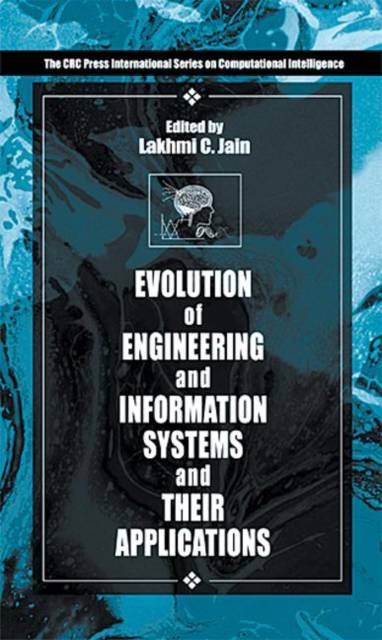
Je cadeautjes zeker op tijd in huis hebben voor de feestdagen? Kom langs in onze winkels en vind het perfecte geschenk!
- Afhalen na 1 uur in een winkel met voorraad
- Gratis thuislevering in België vanaf € 30
- Ruim aanbod met 7 miljoen producten
Je cadeautjes zeker op tijd in huis hebben voor de feestdagen? Kom langs in onze winkels en vind het perfecte geschenk!
- Afhalen na 1 uur in een winkel met voorraad
- Gratis thuislevering in België vanaf € 30
- Ruim aanbod met 7 miljoen producten
Zoeken
Evolution of Engineering and Information Systems and Their Applications
€ 195,95
+ 391 punten
Omschrijving
Worldwide interest in the applications of evolutionary computing techniques to the design of engineering and information systems grows each day. Pattern recognition, control systems, factory scheduling, automation, generation of computer programs, and the design of intelligent paradigms all benefit from evolutionary techniques-their potential applications indeed seem limited only by the imaginations of scientists and engineers.
This is an area of intensive research and development, and evolutionary computing techniques are themselves constantly evolving. It becomes important, then, that computer scientists and applications engineers have a working knowledge of the techniques, stay abreast of recent advances, and have the opportunity to incorporate them into their own systems and designs.
Evolution of Engineering and Information Systems and Their Applications fills this need by providing an overview of the field and offering state-of-the-art reviews of the most important techniques and applications of evolutionary computing. The top experts from around the world discuss developments in genetic algorithms, genetic programming, and evolutionary strategies and applications including VLSI CAD, robot sensors, neural networks, and fuzzy classification systems.
This is a new and very hot field, yet there are few-if any-resources that document and disseminate its advances. With Evolution of Engineering and Information Systems and Their Applications, you have the opportunity to learn from the leading authorities, use these powerful techniques to improve your own systems, and help evolutionary computing reach its nearly boundless potential.
This is an area of intensive research and development, and evolutionary computing techniques are themselves constantly evolving. It becomes important, then, that computer scientists and applications engineers have a working knowledge of the techniques, stay abreast of recent advances, and have the opportunity to incorporate them into their own systems and designs.
Evolution of Engineering and Information Systems and Their Applications fills this need by providing an overview of the field and offering state-of-the-art reviews of the most important techniques and applications of evolutionary computing. The top experts from around the world discuss developments in genetic algorithms, genetic programming, and evolutionary strategies and applications including VLSI CAD, robot sensors, neural networks, and fuzzy classification systems.
This is a new and very hot field, yet there are few-if any-resources that document and disseminate its advances. With Evolution of Engineering and Information Systems and Their Applications, you have the opportunity to learn from the leading authorities, use these powerful techniques to improve your own systems, and help evolutionary computing reach its nearly boundless potential.
Specificaties
Betrokkenen
- Uitgeverij:
Inhoud
- Aantal bladzijden:
- 202
- Taal:
- Engels
- Reeks:
- Reeksnummer:
- nr. 11
Eigenschappen
- Productcode (EAN):
- 9780849319655
- Verschijningsdatum:
- 24/09/1999
- Uitvoering:
- Hardcover
- Formaat:
- Genaaid
- Afmetingen:
- 162 mm x 243 mm
- Gewicht:
- 589 g

Alleen bij Standaard Boekhandel
+ 391 punten op je klantenkaart van Standaard Boekhandel
Beoordelingen
We publiceren alleen reviews die voldoen aan de voorwaarden voor reviews. Bekijk onze voorwaarden voor reviews.








